Cornell on Fire Weekly 5/1
On April 22nd, we moved to Reclaim Earth Day from media greenwashing, corporate propaganda, and obfuscation by the political shills of the reigning socioeconomic world order. On this May Day, we must move onward to secure the earth itself and all its inhabitants, human and others, from those who are burning and inundating and poisoning and stripping it of life for the sake of personal profit, and from the political-economic system that enables and protects them.
The urgency of this task cannot be quite captured by playing on the meaning of “mayday” as a distress call. It is true that many manifestations of the climate crisis are indeed as urgent as the plight of a sinking ship or of a city about to be overrun by a tsunami. However, for many people specific disasters brought about by climate change still happen far enough from home to induce a false sense of it being an SEP: someone else’s problem. Moreover, the inexorable advance and accelerating pace of the global climate catastrophe are still slow, compared with the time scale of a human life. Of course, the tsunami does threaten all of us — even the residents of the global North, who presently feel secure enough to indulge in a lifestyle that contributes the most to ecocide. This is why urgent action is needed now, or else the proverbial complacent frogs in a pot of water being slowly brought to a boil will keep ignoring their predicament until it is too late — an outcome that would be especially sad, given that the frogs had at all times full control over the fire burning under the pot.
David Harvey, writing in 2018, identified three main threats to the future of global capitalism: “The first is the deteriorating relation to nature. The second is compound growth (endless accumulation of capital) at three percent forever. And the third is universal alienation.” On this May Day, let us ourselves become the fourth threat that preempts those three, lest the destruction of nature, the insanity of attempted exponential growth, and the gloom of alienation kill us before we dismantle the system.
Our alienation — from reality, from nature, from one another, from the products of our labor, and from our dreams — is the real enemy. The dynamics of global heating are such that even under the best all-hands-on-deck “mayday” scenario things are liable to get worse before they get better. Hard times are coming — but we, as a species, have endured much harder times. Together, we will weather the coming storm too. We shall do it by learning from Indigenous ways of being, described so movingly by Dr Robin Wall Kimmerer in Braiding Sweetgrass; by fully engaging with reality, or Arboreality, as the title of Rebecca Campbell’s amazing novel has it; and by making sure the cause of individualistic, profit-driven ecocide becomes another famous Lost Cause, taking our cues from the young protagonists of Cory Doctorow’s eponymous book about near-future California.
For Cornell, this means decolonization of (1) its curriculum, which would require, among other actions, ditching the deadly doctrine of America’s dominance and the model of education that costs a fortune to be admitted into, and (2) its operations, which must be brought in line both with its own declared goals and, more importantly, with wider Ithaca’s community practices and regulations and the non-negotiable needs of climate justice.
Harlan Ellison recounts a story about a rabbi who was taking a Sabbath stroll on the village green when he heard a faint cry emanating from the grass at the exact spot where he was about to put down his heel. Bending close to the ground, he saw an ant, lying on its back with all six legs waving in the air, muttering what sounded like a prayer. “What is going on?”, asked the rabbi. “The sky is falling,” replied the ant. “And what are you doing?” — “I am doing what I can.”
What hope is there for the poor ant? In a 1948 cartoon Tea for Two Hundred, ants harassed by Donald Duck join forces and dunk him into the river. Oppressors, and climate criminals, beware: there is power in the union. Our sky may not be falling, but the iron heel of the exploitative and oppressive socioeconomic world order, which is backed by the violent power of the State and which drives the climate catastrophe, is coming down hard on everyone and everything that we care about. A single ant, whether it resists, cooperates, or pretends that not caring either way is a safe option, would be squashed — but not an army of ants. Let’s get to work.
Join us and others in that work:
On Thursday, May 2, 11:45-1:15pm, Faculty and researchers are invited to an Atkinson Topical Lunch with Bryan Alexander, author of Universities on Fire and movement advisor to Cornell on Fire.
Thursday, May 2: No regular Cornell on Fire Working Group meeting (we’ll be hosting Bryan Alexander for dinner!)
On Ho Plaza this Friday, 11-12:30 - support climate justice and social justice.
On Friday, May 3, 4:30-6:00pm, advance climate justice policy with NYSERDA Senior Advisor Sameer Ranade. Important workshop to facilitate public comments at a pivotal, high-stakes moment in New York State’s most ambitious climate policy. Organized by Cornell on Fire & alliance partners (Virtual workshop via this Zoom link).
Next Cornell on Fire Working Group meeting: Thursday, May 9: 6:30-8:00pm (Zoom link here).
Sincerely,
Cornell on Fire
* * * * *
Plurivocality: CoF Weeklies are written by a revolving team of writers. Our movement is diverse, so are our thoughts, and so will be our Weeklies. If you receive a CoF Weekly that you think this is wrong headed, can we still walk together? (We, like you, sometimes write things we later laugh at!)
* * * * *
